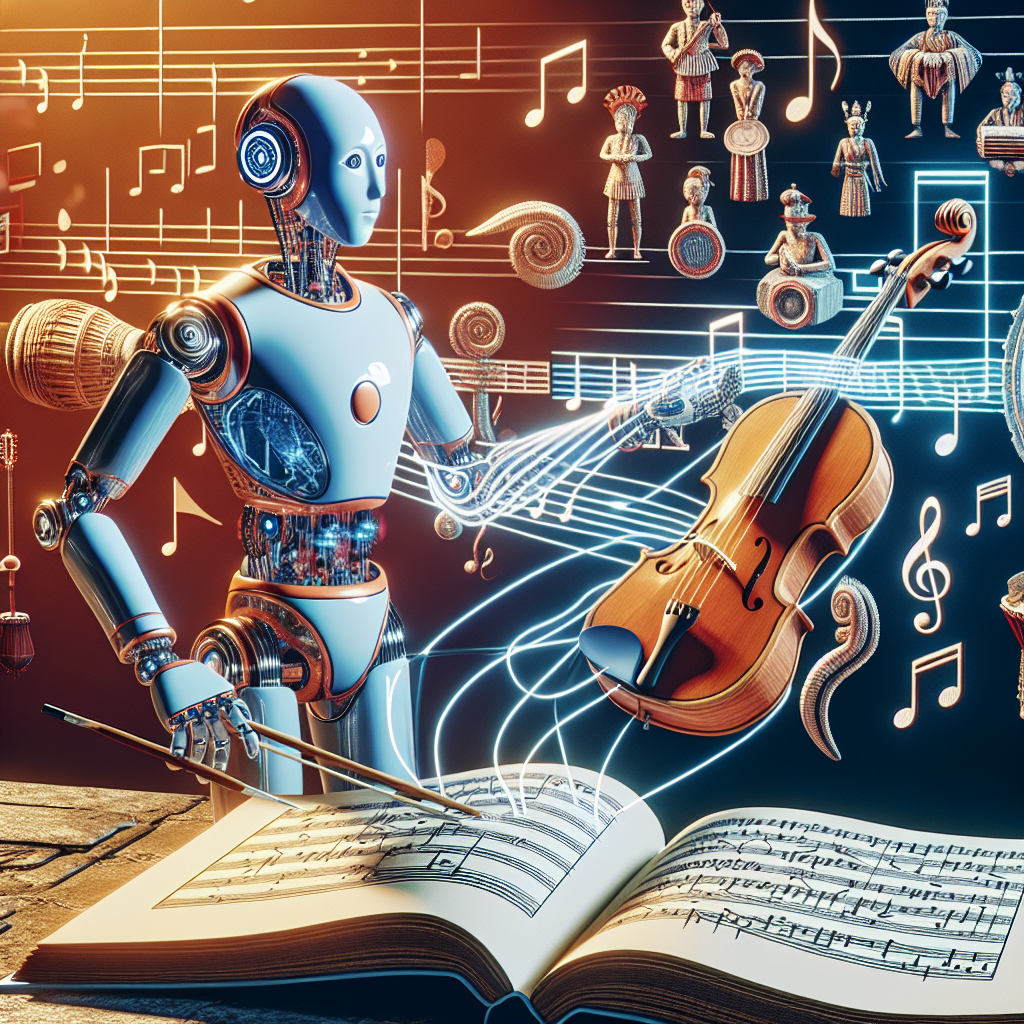Artificial Intelligence (AI) has been revolutionizing various industries, and the preservation of musical heritage is no exception. With the advancement of technology, AI has allowed us to digitize, analyze, and preserve musical artifacts in ways that were previously unimaginable. In this article, we will explore how AI is being used to preserve musical heritage, the challenges and opportunities it presents, and how it is shaping the future of music preservation.
Preserving musical heritage is essential to understanding our cultural history and identity. Music has the power to evoke emotions, tell stories, and connect people across time and space. However, preserving musical heritage is not without its challenges. Traditional methods of preservation, such as archiving physical recordings or sheet music, are limited in scope and can be prone to deterioration over time. Additionally, many musical artifacts are in danger of being lost or forgotten due to lack of resources or expertise in preservation efforts.
This is where AI comes in. AI technologies such as machine learning, natural language processing, and computer vision are being used to digitize, analyze, and preserve musical artifacts in innovative ways. For example, AI can be used to transcribe audio recordings into digital formats, identify and catalog musical compositions, and even recreate lost or damaged musical pieces. By leveraging AI, we can ensure that our musical heritage is not only preserved but also accessible to future generations.
One of the key ways in which AI is being used to preserve musical heritage is through digitization. AI-powered tools can convert analog recordings, such as vinyl records or cassette tapes, into digital formats that are easier to store and access. This not only helps to preserve the original recordings but also makes them more widely available to researchers, musicians, and music enthusiasts. Additionally, AI can be used to clean up and enhance audio recordings, removing background noise or imperfections that may have accumulated over time.
Another way in which AI is being used to preserve musical heritage is through analysis and categorization. AI algorithms can analyze large amounts of musical data, such as sheet music or audio recordings, to identify patterns, similarities, and connections between different pieces of music. This can help researchers and historians better understand the evolution of musical styles, genres, and traditions. AI can also be used to categorize and tag musical artifacts, making it easier to search and retrieve specific pieces of music from large archives.
One of the most exciting applications of AI in preserving musical heritage is the ability to recreate lost or damaged musical pieces. By analyzing existing musical compositions and styles, AI algorithms can generate new music that is inspired by the past. This can be especially valuable for reconstructing pieces of music that have been lost to history, such as works by obscure composers or pieces that were destroyed in wars or natural disasters. By using AI to recreate lost music, we can ensure that our musical heritage continues to evolve and thrive.
Despite the many opportunities that AI presents for preserving musical heritage, there are also challenges and ethical considerations to be aware of. For example, there is the risk of bias in AI algorithms, which may inadvertently reinforce stereotypes or exclude certain musical traditions from preservation efforts. Additionally, there are concerns about privacy and ownership rights when it comes to digitizing and sharing musical artifacts. It is important for researchers, musicians, and policymakers to consider these issues carefully and work towards responsible and inclusive practices in using AI for music preservation.
In conclusion, AI has the potential to revolutionize the preservation of musical heritage by digitizing, analyzing, and recreating musical artifacts in ways that were previously impossible. By harnessing the power of AI, we can ensure that our musical heritage is not only preserved but also accessible and relevant to future generations. As technology continues to advance, it is exciting to imagine the possibilities for music preservation and the ways in which AI will continue to shape the future of music.
FAQs:
Q: How is AI being used to digitize musical recordings?
A: AI-powered tools can convert analog recordings, such as vinyl records or cassette tapes, into digital formats that are easier to store and access. This helps to preserve the original recordings and make them more widely available.
Q: What are some of the challenges of using AI in music preservation?
A: Some challenges include bias in AI algorithms, concerns about privacy and ownership rights, and the need for responsible and inclusive practices in using AI for music preservation.
Q: How can AI help recreate lost or damaged musical pieces?
A: By analyzing existing musical compositions and styles, AI algorithms can generate new music that is inspired by the past. This can be valuable for reconstructing pieces of music that have been lost to history.
Q: What are some ethical considerations to keep in mind when using AI for music preservation?
A: It is important to consider issues of bias in AI algorithms, privacy and ownership rights, and the need for responsible and inclusive practices in using AI for music preservation.

